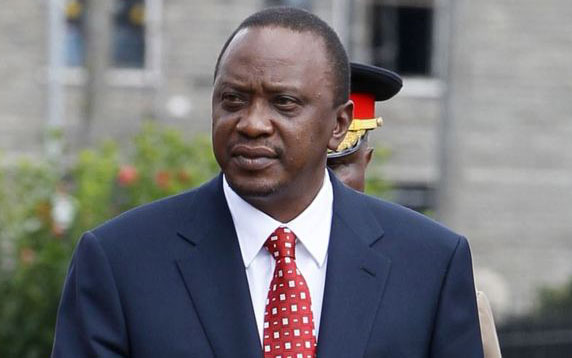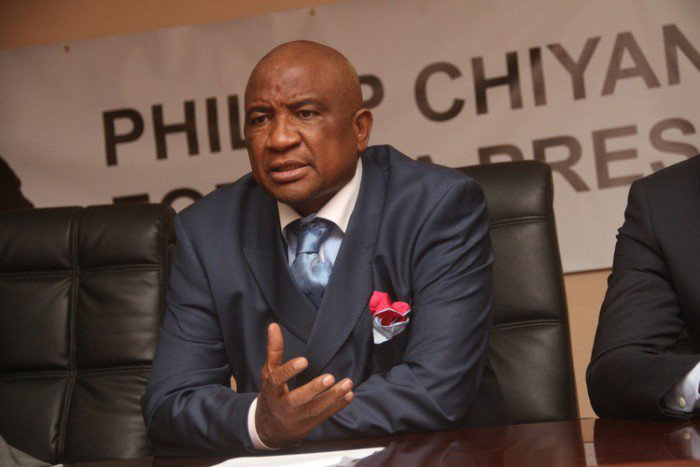Early elections? Why not!


TOUR DE FORCE . . . Part of the zanu-pf faithful at an open ground behind Mkoba Teachers’ College in Gweru yesterday, for the 7th leg of President Mugabe’s interactive meetings with youths
Radar
The story is getting all too familiar. The Zanu-PF juggernaut is rolling. Zanu-PF is on a rampage.
Zanu-PF is on a mission.
Yesterday it was Gweru, the Midlands capital — at the very heart of the country.
The party showed its massive mobilising prowess once again, with all its meanness and ruthless efficiency.
Let’s give the generous estimate that 120 000 people turned up for the mega rally under the motif of the Presidential Youth Interface Rallies.
This was the seventh leg.
We all know what this means.
We have been superlative in our description of how Zanu-PF is good at mobilising its supporters for a cause — perhaps just about any cause in the name of the party.
That is what matters at the end of the day.
The numbers of the party faithful.
The voting faithful.
Never mind about the sour grapes from opponents about the calibre of supporters — whether they are bussed in, as is the common lame excuse; whether they come from the rural areas or they are uneducated.
Politics is a numbers game; so is democracy.
With Zanu-PF tour de force we know what this means: let’s say pretty much everyone else does.
There is today a near universal agreement that Zanu-PF is bound to win elections set for next year.
Interestingly, even the stolid opponents of Zanu-PF are resigned to this fact and are mapping out how to work with the ever ruling party post 2018.
Just so the reader knows, there is a lot of consultation from people outside who are running permutations as to how the next Government will work and relate.
But the future is decidedly Zanu-PF.
The opposition has been relegated to circumstance — circumstantial of, and to, a Zanu-PF hegemony.
At least for another five years.
Till 2023.
The reader may have come across such scenarios as run by Alex Magaisa which at best sees the opposition fighting — or having to fight to avoid Zanu-PF claiming two-thirds majority in Parliament.
That is the best the opposition could achieve.
Magaisa was speaking in the context of the recent passage of Constitutional Amendment Number 1.
He said: “As I have pointed out, two thirds majority is the minimum threshold required to amend the Constitution and having two thirds majority in the hands of a ruling party is a danger to the Constitution. Given how ZANU-PF has behaved in regards to Amendment No. 1, the nation can only fear more such changes should it win by two thirds majority next year. They were probably too embarrassed to use their majority so soon after the new Constitution was adopted in 2013, but they will probably go into overdrive should they retain two thirds majority in 2018. This means as a matter of strategy, in the absence of outright victory in 2018, the opposition must at the very least target preventing a two thirds majority for ZANU PF.”
The idea of the opposition scrapping just enough to stop a whitewash is currently in vogue.
And it is the most realistic expectation, bar any miracles.
Miracles are hard to come by these days.
Bloody Bulawayo.
Let’s talk about the opposition.
The opposition is rallying around the idea of a coalition under the banner of MDC-Alliance. That is about the biggest outfit, anyway.
This one is led by Morgan Tsvangirai and is proving to be a such a hard sell.
Other parties such as Joice Mujuru’s NPP, Dumiso Dabengwa’s Zapu and so forth have rejected the idea.
At least on some technicalities.
But much more interesting is the fact that within the MDC-T itself there are others who are against the very spirit of coalition.
Thokhozani Khupe and her Matabeleland cohorts are not keen on the coalition — and have paid a heavy price for it with some physical beatings being meted on them just recently, followed up by the suspension and other political pogroms that are likely to be undergoing.
Already Abednico Bhebhe has been suspended.
He is the national organising secretary.
What is interesting is that today, September 2, Morgan Tsvangirai is taking to Bulawayo to launch the MDC-Alliance.
It is a hostile move.
We are fearing for the worst: blood on the floor.
Morgan Tsvangirai is known to deploy thugs to “discipline” dissenting members of his party.
We are likely to see violence in Bulawayo: we do not expect Khupe to take it lying down.
The hostile takeover will be resisted, setting the stage for what could be yet another split — again.
Let’s wait and see.
And pray.
Early elections
The Daily News this week had an interesting story in which it claimed that the ruling party, Zanu-PF was planning to hold elections earlier than anticipated in what the paper mainly thinks will be a ploy to catch the opposition flat-footed.
Which it is now — at sixes and sevens.
The story is interesting in one big way: it sets the agenda for us to begin to think (of) elections and elections next year with the newspaper going to admirable length to show us the political and legal imperatives for the move.
Zanu-PF’s secretary for Administration Ignatius Chombo is quoted as saying: “ . . . there is no doubt that the elections are going to take place in the first half of next year. Time is, therefore, of essence if we are going to put in place mechanisms that will help us win the election.”
He adds bullishly: “And for us as Zanu PF, there is no other option, but to win thiselection by a margin that leaves no doubt that we are the dominantpolitical party in this country.”
A couple of ways have been suggested as means to force an early election, chief of which would be the dissolution of Parliament.
In July this year, when the question of early elections arose, Doug Coltart wrote in the Newsday question whether the ruling party could call for early elections.
Again, Chombo had just indicated that the ruling party was keen on an early poll.
“The short answer is, yes,” he explained.
“Zanu-PF controls more than two-thirds of both houses of Parliament and so, if all of their parliamentarians act together, they do have the ability to dissolve Parliament and call early elections . . . Normal votes in Parliament only require a simple majority (over 50 percent) of the Members of Parliament (MPs) present at the time of the vote.
“Since this resolution requires 66,6 percent of all MPs (whether or not everyone is present), it is a much more onerous hurdle, not least because many MPs frequently don’t turn up for work!”
Coltart noted that Zanu-PF MPs “typically vote as a block and are very subservient to the executive and so they might still do as they are told even if it’s against their personal interests.”
That, ladies and gentlemen, means that elections are closer than we may have budgeted for.
Good thing is that they come with all the interest and intrigues that we would love to see — and most happily, resolve some deeper leadership questions.
So, may the best team win!
Mad at Mudede
The Registrar-General Tobaiwa Mudede this week announced that it is starting a three-month national mobile registration exercise for national identity cards, birth and death certificates in preparation for voter-registration.
He advised aspiring voters to obtain machine readable plastic national identity cards which will be used for biometric voter registration.
He explained: “It is our stand that everyone should be registered and it will not be possible for anybody to go to elections next year without the documents and argue that she or he was never allowed to register.
“You will never be allowed to vote without these documents. I am sure the Zimbabwe Electoral Commission (Zec) will be coming behind us so that there will be verification at the same time.”
Expectedly, the news was latched onto by our opposition who claimed that it was part of vote rigging — which is a rather familiar tale.
As the fact that Mudede himself is not such a liked figure in the opposition which is forever on the lookout for excuses.
According to one news story, Transform Zimbabwe leader Jacob Ngaruvhume (Tsvangirai’s ally in the Alliance), said “this is broad daylight rigging.”
“This is unacceptable, voter registration must be done by ZEC not the RG. They want to rerun to their old system which they have used to rig previous elections.”
Ngarivhume added: “Zimbabweans will not accept that, they must be ready for backlash. We will resist this with contempt it deserves.”
Well, that’s some bravado there from Mr Ngarivhume, no doubt took keen to impress his opposition alliance colleagues!
But it is also folly writ large.
Just how some people think that the office of RG can be wished away in such an exercise as central to its mandate as issuing identity registration beats the mind.
While it is true that ZEC ought to play a key role in registering voters and administering elections, there is not way it cannot do without the very department that has the national database!
It is something that the likes of Ngarivhume may need to get it in their skulls.
It is not a matter of liking the person of Mudede.
It is bureaucracy.









Comments